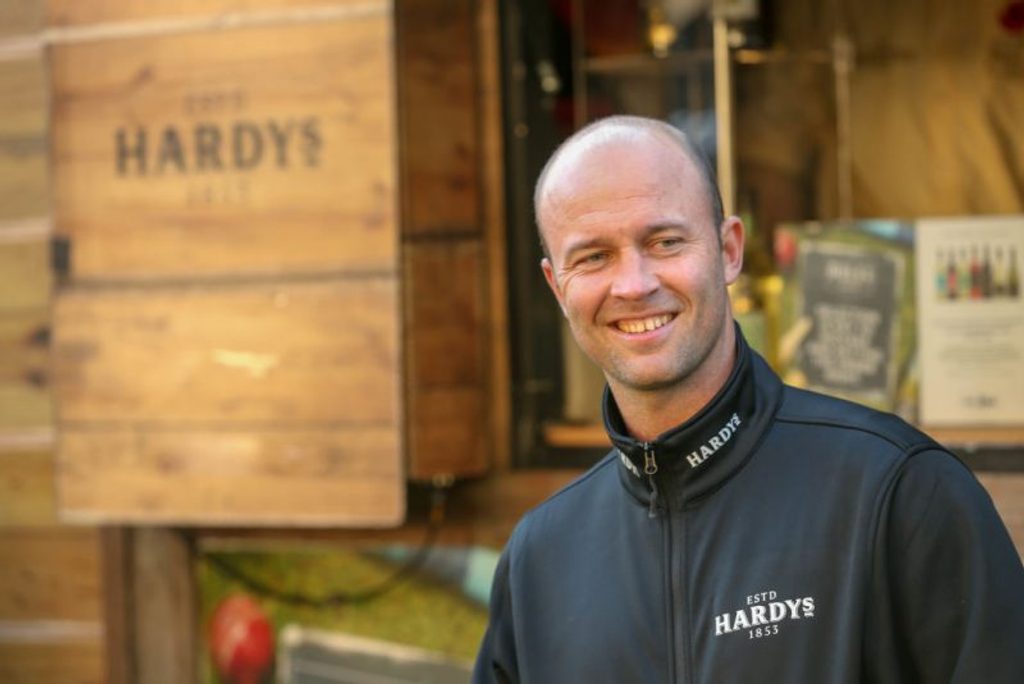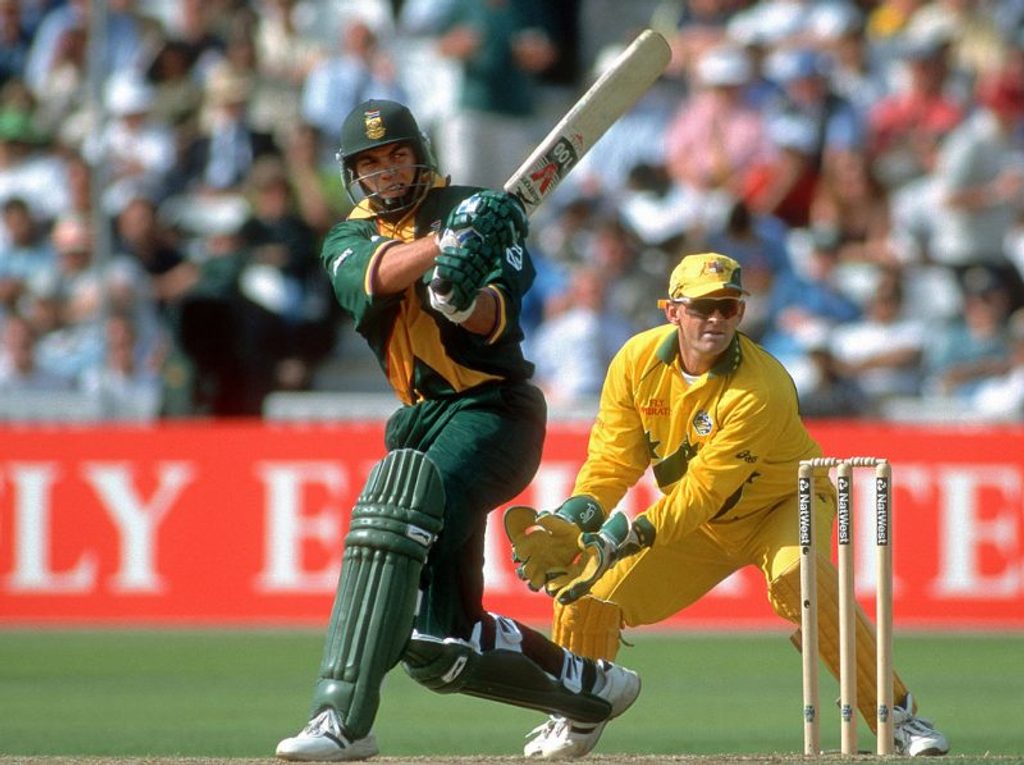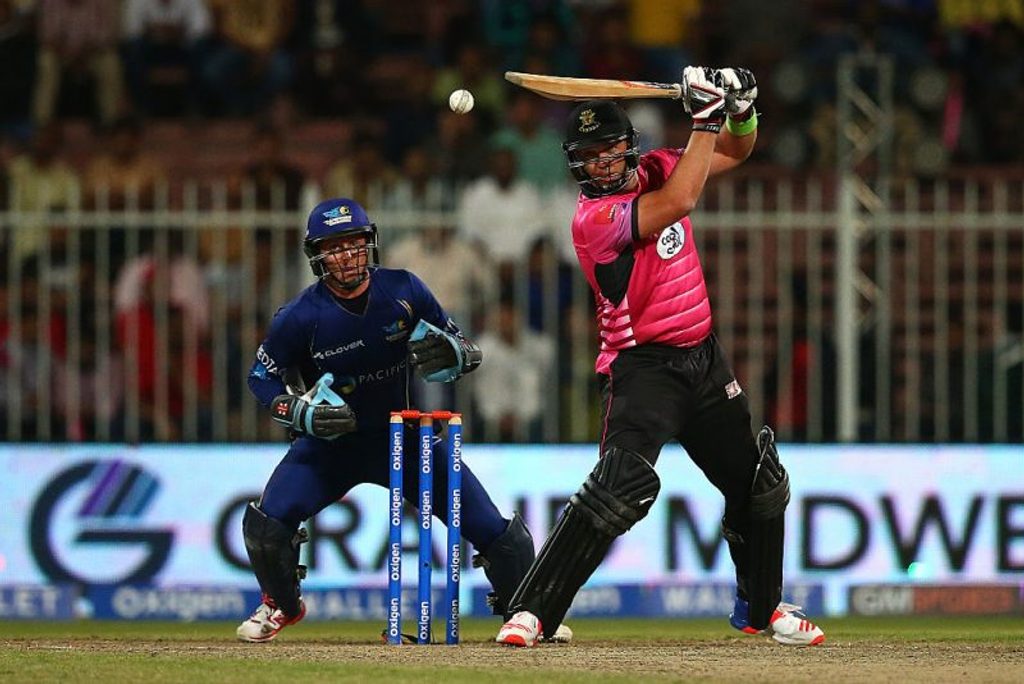
Despite piecing together a career that is worthy of a place among the cricketing gods, Jacques Kallis remains oddly underrated in certain circles. On his 44th birthday, we revisit this Jo Harman interview, from 2017, as he tries to peel off the layers covering cricket’s consummate all-rounder.
“These days it’s all about entertainment, being easy on the eye. It’s not about effectiveness, the role that you play or how much you’re worth to a team.”
Jonathan Trott can’t understand why Jacques Kallis isn’t regarded by more people as the greatest cricketer of the modern era, if not the greatest of all time. “It’s ridiculous,” he continues. “People go with Tendulkar and Lara because of the way that they watch cricket, but if you stack him up against anybody, he’s the best.”
Trott has a point. Kallis’ Test record compares favourably with almost any other batsman of modern times, with a higher average than Lara, Tendulkar, Dravid and Ponting. Among batsmen who have debuted in the past 30 years, only Kumar Sangakkara, Steve Smith and Adam Voges (who only played 20 Tests, and a high percentage of those against weaker nations) can top Kallis’ career average of 55.37.
As an all-rounder, only Sobers can rival him in terms of statistics, with the West Indian having a slightly better batting average and marginally inferior bowling average.
So why is it that Kallis rarely receives the same level of adulation as cricket’s demi-gods?
“I think it was my personality,” he says bluntly. “I never really enjoyed the limelight, I liked going about my business and just getting on with the job. I never played the game for accolades or anything like that. I just enjoyed doing what I did and I really didn’t go out of my way to worry about what people said or market myself.”
Kallis is speaking to us in a hospitality box at Lord’s. This evening he will be guest of honour at an event organised by the Lord’s Taverners to celebrate his career. If the glitzy dinner wasn’t raising money for charitable causes, it seems doubtful he’d have agreed to anything so showy.
Speaking about himself isn’t something that comes naturally to Kallis. During his playing career he was known to be a reluctant interviewee who gave very little away and since his retirement from international cricket in 2014 nothing has changed. There’s been no warts-and-all autobiography, no outspoken views on team selection, very little profile of any kind at all. To scroll through his Twitter feed you could be forgiven for thinking Kallis was a golfer rather than arguably the greatest cricketer of all time.
 “To scroll through his Twitter feed, you could be forgiven for thinking Kallis was a golfer rather than arguably the greatest cricketer of all time”
“To scroll through his Twitter feed, you could be forgiven for thinking Kallis was a golfer rather than arguably the greatest cricketer of all time”
He’s fresh off the course today, having just played a round at Wentworth. Softly-spoken and pleasant enough, he keeps his answers to the minimum number of words that would be considered polite. It comes as no great surprise that Jacques Kallis is a tough nut to crack.
“I don’t think anybody knows him well,” says Firdose Moonda, ESPNcricinfo’s South Africa correspondent. “Mark Boucher is probably the only one that does. He’s not a warm character at all. Graeme Smith might not be warm, but he’s engaging. With Kallis, nobody can really get through the stone wall that he puts around himself.
“I was talking with a friend of a friend recently and she was saying if you get stuck next to him at a braai you sort of just say, ‘I’m going to the toilet’ and kind of run away, because he’s not a very talkative guy. I think he’s just very good at shutting out everything and everyone, and we saw that in the way he batted as well. One of the most infuriating things about him for the opposition was that no matter what they said to him, he just didn’t care. He’s very good at operating in his own bubble.”
 Jonathan Trott, who has observed Kallis from his growing up years, doesn’t believe that people have understood how truly great the South African is
Jonathan Trott, who has observed Kallis from his growing up years, doesn’t believe that people have understood how truly great the South African is
Trott has known Kallis, or at least moved in the same circles as him, since growing up in Cape Town. “He went to Wynberg and I was still at Rondebosch [a local rival school] when he broke into the province side. I always say to him, ‘Imagine how good you could have been if you went to Rondebosch!’. He came and played at the same club I was at for a little bit. At about
14 or 15 he was very small, he couldn’t hit it off the square. Technically: amazing. Work ethic: amazing. But then he suddenly just grew. He was the all-round package from a very young age: the great all-rounder. It was every schoolboy’s ambition to basically be him: to bat, bowl and catch everything. It was a real pleasure watching him as a kid and to play against him at international level was even more of a treat.
“He just loves batting, he loves cricket and he loves golf. That’s basically it. And some beer. He’s quite a simple guy. The thing for me is he doesn’t try and be something he’s not. He’s just who he is, take him or leave him. He sticks to his guns.”
This unflinching, unapologetic single-mindedness may help to explain why Kallis is not revered among fans in the way that, say, Sobers, Botham, Flintoff, Imran, Wasim or Stokes are. They felt, or feel in the case of Stokes, a duty to entertain, to thrill the crowd. Kallis felt no such responsibility. It’s what led Mike Selvey to once describe his batting as “utterly soulless”. For Kallis, cricket was purely a results business, and that made him hard to love. Not that he’s in the least bit bothered about that.
“I learnt very early on in my career that if you worry about what people are saying around you, you’re not going to achieve anything,” he says. “I worried about what my close friends, teammates and coaches had to say, but the rest… it never bothered me at all. Honestly, the only recognition I looked for was that we won games of cricket. It was never about who I was or what I achieved, it was something that never crossed my mind. To this day it doesn’t cross my mind. I think that probably helped me throughout my career.”
Was that the key to his success and longevity?
“Yeah, even away from cricket I’m not very emotional. I get on with life, I try to live a balanced life, and don’t go too high or low. I think, if you can, try and keep it in the middle ground. For me it certainly worked. Other guys are different, they need to hype themselves up and get into that zone where they’re full of energy. Jonty Rhodes was one who was jumping up and down before he went into bat and running around the changing room. I’d have wasted too much energy if I’d done that. It’s horses for courses, I suppose.”
While Kallis takes pride in keeping his emotions in check, dig a little deeper and there is an inkling of a more sensitive side to him than his public persona suggests.
When discussing the Jacques Kallis Foundation – an initiative which awards scholarships to youngsters from disadvantaged backgrounds to attend South Africa’s most prestigious cricket schools – he speaks with more passion than at any other point in our interview. He has spoken in the past about the profound effect his father’s death had on him and his career. In 2015, during the very public breakdown of Graeme Smith’s marriage, he issued an impromptu statement that took everyone by surprise, describing accusations made in the press as “outrageous”. “It is utter rubbish and seems deliberately designed to hurt,” said Kallis.
There may be a bit more behind that stone wall than Kallis likes to let on.
***
Moonda says that even in South Africa, Kallis is respected rather than idolised, although admiration for him has grown in the years since his retirement. “Because of that lack of personality and lack of warmth, it’s been very difficult for Kallis to transcend cricket and for people to see him as anything other than just a very, very good player. I don’t think South Africans warmed to him like they did to Makhaya Ntini or AB de Villiers. Even Smith – people didn’t really like Smith, but I think they liked to dislike him. That is changing, though. As the South African team hits these speed bumps people are starting to place a lot more value on the Smith-Kallis era. Now they’ve gone and we can see the holes that they’ve left, people are saying we should have appreciated them more.”
Considering his extraordinary record, Kallis copped a considerable amount of stick during his career, both at home and abroad. He was often viewed as a selfish player who batted too slowly, and regularly described as a reluctant bowler, particularly later in his career.
 Jacques Kallis played a valiant innings, but couldn’t save South Africa from a heartbreaking exit in the 1999 World Cup semifinal against Australia
Jacques Kallis played a valiant innings, but couldn’t save South Africa from a heartbreaking exit in the 1999 World Cup semifinal against Australia
His innings of 53 from 92 deliveries in the 1999 World Cup semi-final against Australia – which ended in a tie, knocking South Africa out because of a defeat to the Aussies earlier in the competition – is often held up as an example of his cautious approach costing his side victory. It created a perception, fair or not, that he never managed to shake off. Less well remembered is that in that semi-final South Africa had lost four wickets for 13 runs to slip from 48-0 to 61-4 on a spicy Edgbaston pitch, and some troubleshooting was required. If Donald and Klusener hadn’t lost their heads at the finishing line, Kallis’ knock would have been remembered very differently.
Moonda says accusations of selfishness are wide of the mark. “I don’t think he spends a lot of time thinking about numbers or what he averages, I just don’t think those kinds of things matter to him. A lot of the times Kallis batted slowly were because the team was in trouble and that got misrepresented that he was selfish. He seemed to me very much a team man.”
Kallis, perhaps surprisingly, says the best he ever batted was in his late thirties, when he was part of a stronger South African batting unit and therefore shouldered less responsibility. “I think towards the end of my career was when I was probably playing my best cricket, right up until the last innings. I played with a little bit more freedom. We had a more stable and solid batting line-up so I could take a few more risks. We were playing good cricket as a team. I probably enjoyed batting the most towards the end of my career.”
It’s not a career that Kallis is sad to have left behind. “I don’t miss it one bit,” he says. “I’m enjoying every minute of retirement, so no regrets, no sour notes. I was still playing good cricket but I just got to a stage where I felt it was time for me to get out. I wasn’t enjoying it as much as I perhaps did at the beginning, particularly the training side of it.”
Does he have less love for the game than when he started out? “Probably, yeah. Look, I’ve never been one, even through my career, to watch much cricket. I loved playing it but I’ve never been a great watcher of the game. From that point of view, nothing really has changed. If I said to you I’d watched 10 balls of the England-South Africa series, that’s probably a lie. I saw the results but that’s probably about as much as I know. But the game of cricket has given a lot in my life and I try and give back, certainly from a coaching point of view.”
***
In February 2016, as part of a feature on the world’s most underrated cricketers, we picked out Kallis, writing: “There is an almost grudging acceptance of his excellence that’s rarely accompanied by a true appreciation of his standing within the game”. It caused a minor stink on Twitter, with Darren Gough tweeting us to say we were talking nonsense: ‘Just played masters cricket [the Masters Champions League in UAE] and everyone says he’s the best ever’.
 Darren Gough didn’t seem to agree that Kallis is unheralded, after seeing the adulation he received at the Masters Champions League
Darren Gough didn’t seem to agree that Kallis is unheralded, after seeing the adulation he received at the Masters Champions League
Gough’s reply appears to be indicative of a distinction in the way that Kallis is viewed between those who play the game at the highest level, and those who watch it. While fans, and often the media, might not speak of Kallis in the same breath as Sachin, Sobers or Lara, many of those who have played with or against him regard him as their equal or better.
“I truly believe Kallis is the greatest cricketer ever,” said Kevin Pietersen in 2010. Michael Vaughan judged Kallis to be a “close second” to Shane Warne when asked the best player he had ever seen and described him as “the game’s greatest ever all-rounder”. Rahul Dravid called him “The Garry Sobers of our generation”. Brett Lee ranked him the “best ever”.
Hashim Amla put it most succinctly upon Kallis’ retirement from international cricket. “You appreciate the magnitude of the cricketer not only when you look at his record but also when you play alongside him.”
Kallis would probably be quietly satisfied with that. Not that he’s in the business of letting on.








